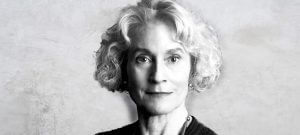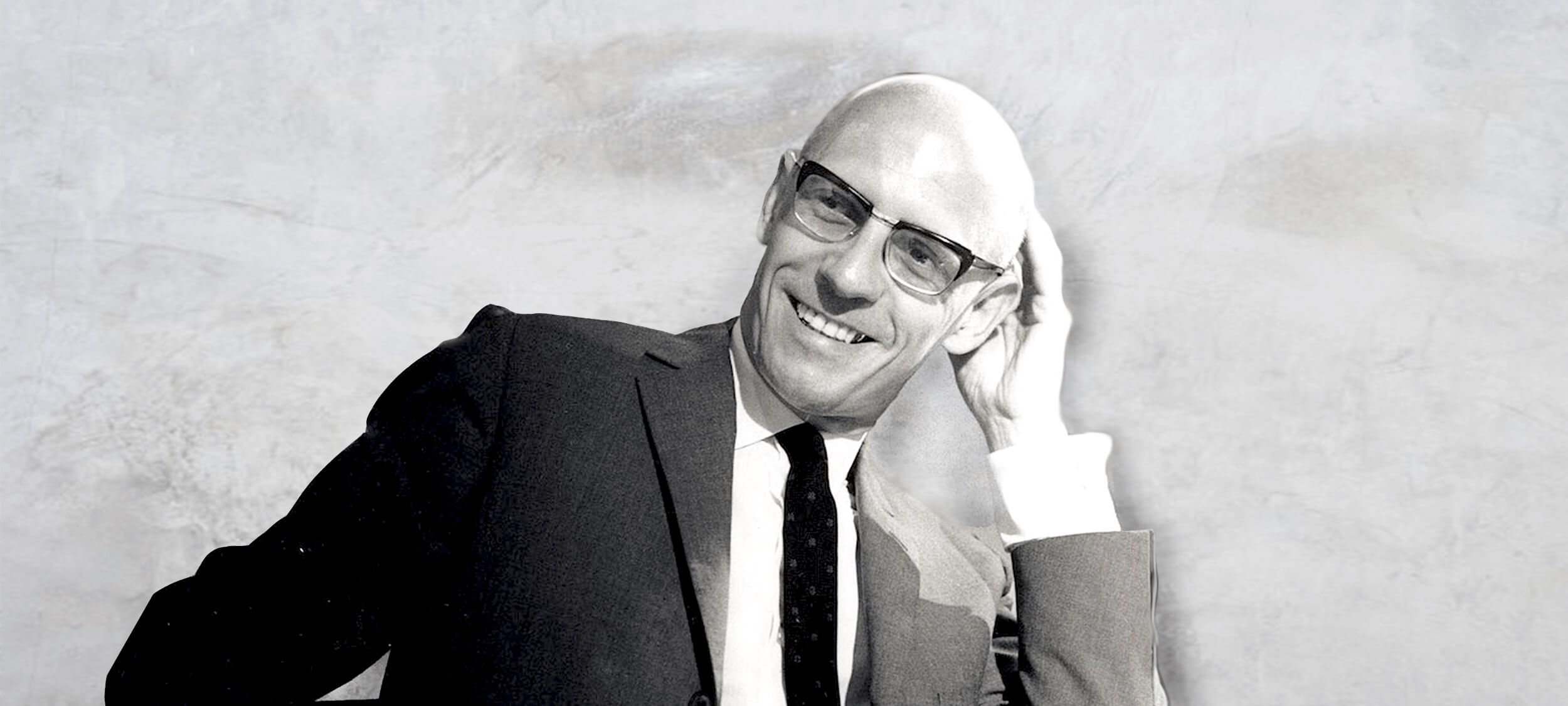Big Thinker: Francesca Minerva

Big Thinker: Francesca Minerva
Big thinkerPolitics + Human RightsScience + Technology
BY The Ethics Centre 27 OCT 2021
Francesca Minerva is a contemporary bioethicist whose work largely includes medical ethics, technological ethics, discrimination and academic freedom.
A research Fellow at the University of Milan and the co-founder and co-editor of the Journal of Controversial Ideas, Francesca Minerva has published extensively within the field of applied ethics on topics such as cryonics, academic freedom, conscientious objection, and lookism. But she is best (if somewhat reluctantly) known for her work on the topic of abortion.
Controversy over ‘After-birth Abortion’
In 2012, Minerva and Alberto Giubilini wrote a paper entitled ‘After-birth Abortion: why should the baby live?’ The paper discussed the moral status of foetuses and newborn babies and argued that after-birth abortion (more commonly known as infanticide) should be permissible in all situations where abortion is permissible.
In the parts of the world where it is legal, abortion may be requested for a number of reasons, some having to do with the mother’s well-being (e.g., if the pregnancy poses a risk to her health, or causes emotional or financial stress), others having to do with the foetus itself (e.g., if the foetus is identified as having a chromosomal or developmental abnormality).
Minerva and Giubilini argue that if it’s permissible to abort a foetus for one of these reasons, then it should also be permissible to “abort” (i.e., euthanise) a newborn for one of these reasons.
This is because they argue that foetuses and newborns have the same moral status: Neither foetuses nor newborns are “persons” capable of attributing (even) basic value to their life such that being deprived of this life would cause them harm.
This is not an entirely original argument. Minerva and Giubilini were mainly elaborating on points made decades ago by Peter Singer, Michael Tooley and Jeff McMahan. And yet, ‘After-birth Abortion’ drew the attention of newspapers, blogs and social media users all over the world and Minerva and Giubilini quickly found themselves at the centre of a media storm.
In the months following the publication, they received hundreds of angry emails from the public, including a number of death threats.
The controversy also impacted their careers: Giubilini had a job offer rescinded and Minerva was not offered a permanent job in a philosophy department because members of the department “were strongly opposed to the views expressed in the paper”. Also, since most of the threatening emails were sent from the USA, they were advised not to travel to the USA for at least a year, meaning that they could not attend or speak at academic conferences being held there during that period.
So why did ‘After-birth Abortion’ attract so much attention compared to older publications on the same topic? While the subject matter is undoubtedly controversial, Minerva believes the circulation of the paper had more to do with the internet than with the paper itself.
Academic Freedom and the Journal of Controversial Ideas
“The Web has changed the way ideas circulate.” Ideas spread more quickly and reach a much wider audience than they used to. There is also no way to ensure that these ideas are reported correctly, particularly when they are picked up by blogs or discussed on social media. As a result, ideas may be distorted or sensationalised, and the original intent or reasoning behind the idea may be lost.
Minerva is particularly concerned about the impact that this may have on research, believing that fear of a media frenzy may discourage some academics from working on topics that could be seen as controversial. She believes that, in this way, the internet and mass media may pose a threat to academic freedom.
“Research is, among many other things, about challenging common sense, testing the soundness of ideas that are widely accepted as part of received wisdom, or because they are held by the majority of people, or by people in power. The proper task of an academic is to strive to be free and unbiased, and we must eliminate pressures that impede this.”
In an effort to eliminate some of this pressure, Minerva co-founded the Journal of Controversial Ideas, alongside Peter Singer and Jeff McMahan. As the name suggests, the journal encourages submissions on controversial topics, but allows authors to publish under a pseudonym should they wish to.
The hope is that by allowing authors to publish under a false name, academics will be empowered to explore all kinds of ideas without fearing for their well-being or their career. But ultimately, as Minerva says, “society will benefit from the lively debate and freedom in academia, which is one of the main incubators of discoveries, innovations and interesting research.”
Ethics in your inbox.
Get the latest inspiration, intelligence, events & more.
By signing up you agree to our privacy policy
You might be interested in…
Big thinker
Politics + Human Rights, Relationships
Big Thinker: Mary Wollstonecraft
Opinion + Analysis
Politics + Human Rights, Relationships
Free markets must beware creeping breakdown in legitimacy
Big thinker
Politics + Human Rights
Big Thinker: Michael Sandel
Big thinker
Politics + Human Rights, Relationships
Big Thinker: Eleanor Roosevelt
BY The Ethics Centre
The Ethics Centre is a not-for-profit organisation developing innovative programs, services and experiences, designed to bring ethics to the centre of professional and personal life.
Big Thinker: Judith Butler

Big Thinker: Judith Butler
Big thinkerHealth + WellbeingPolitics + Human RightsRelationships
BY The Ethics Centre 19 OCT 2021
Judith Butler (1956—present) is an American academic and activist, who has made considerable contributions to philosophy, literature, gender and feminist studies.
They are the Maxine Elliot Professor in the Department of Comparative Literature and the Program of Critical Theory at the University of California, Berkeley and holds the Hannah Arendt Chair at the European Graduate School in Sass Fee, Switzerland.
Although Butler has an impressive number of publications to their name, they are best known for their book, Gender Trouble: Feminism and the Subversion of Identity (1989; 1990).
Gender Trouble
Gender Trouble explores the traditional understandings of sex and gender in feminist theory. Butler argues against the view that gender is based on (or follows from) our biology, claiming instead that gender is produced by performance – that we construct gender by behaving and expressing ourselves in certain ways.
This “gender performativity” has been interpreted in different ways. Some have taken performativity to mean that gender is determined by society and therefore completely outside of the individual’s control (i.e., you are the gender you have been assigned).
Others have understood performativity to mean that gender can be chosen or changed at will, since it has no biological basis. Members of the trans community have critiqued this understanding, saying that conceiving of gender as something that can be changed voluntarily makes it seem superficial or fake and risks undermining how important someone’s gender identity can be to their sense of self.
More recently, Butler has clarified their own understanding of gender performativity, stating:
Butler’s understanding of gender performativity lies somewhere in between the two previous views. For Butler, gender is not something that is fixed by society and unalterable on an individual level, but it is also not something superficial that can be changed like a piece of clothing. Instead, gender is created through sustained practices that make gender appear as though it’s something natural or internal to us, but really these practices are influenced and regulated by society and culture. By recognising this, Butler says, we can collectively start to change gender norms so that we can each find a way to live more authentically.
Though the term ‘non-binary’ did not exist at the time Butler published Gender Trouble, in recent years Butler has changed their legal gender to non-binary and uses she/they pronouns.
After Gender Trouble
Gender Trouble had a profound influence over the development of feminist theory and is widely considered to be one of the founding texts of queer theory. Since its publication in 1989, Gender Trouble has been translated into 27 languages and has become a staple text for feminist and gender studies courses all over the world.
As a result, Butler has achieved a fame that transcends the academic community – and it hasn’t always been positive.
For some people, Butler’s views are considered dangerous or threatening to the traditional way of life. In 2017, evangelical Christian protestors burnt an effigy of Butler outside an academic conference they were attending in Brazil, while chanting “take your ideology to hell.”
Despite this, Butler continues to write and speak about gender, feminist and queer issues and is active in the resistance against the anti-gender movement – an international movement that opposes gender equality, LGBTQIA+ rights and sexual and reproductive freedoms.
Butler has, for many years, been a vocal advocate for the rights of marginalised people and has been active in anti-war and anti-racism movements.
Their most recent book, The Force of Non-violence: An Ethico-Political Bind (2020), argues that social inequality cannot be separated from our understanding of violence. For Butler, violence is not just swinging fists and wielding weapons. Violence is any action (or inaction) that harms another – including public policies and institutional practices that create social inequalities.
In response to this kind of violence, Butler advocates nonviolence. Importantly, however, Butler does not understand nonviolence as something passive. Nonviolence requires an aggressive commitment to radical equality and an “opposition to biopolitical forms of racism and war logics that regularly distinguish lives worth safeguarding from those that are not.”
Butler wants us to recognise that we are all in this together and build a world that is reflective of this – a world that is committed to radical equality.
Ethics in your inbox.
Get the latest inspiration, intelligence, events & more.
By signing up you agree to our privacy policy
You might be interested in…
Explainer
Relationships
Ethics Explainer: Double-Effect Theory
Opinion + Analysis
Relationships, Science + Technology
Injecting artificial intelligence with human empathy
Opinion + Analysis
Relationships
On saying “sorry” most readily, when we least need to
Opinion + Analysis
Politics + Human Rights
Hey liberals, do you like this hegemony of ours? Then you’d better damn well act like it
BY The Ethics Centre
The Ethics Centre is a not-for-profit organisation developing innovative programs, services and experiences, designed to bring ethics to the centre of professional and personal life.
Seven Influencers of Science Who Helped Change the World

Seven Influencers of Science Who Helped Change the World
Big thinkerScience + Technology
BY The Ethics Centre 18 AUG 2021
We’re all familiar with the Einsteins and Hawkings of history, but there are many who have influenced the direction and development of science. Here are seven scientists and philosophers who have shaped how science is practiced today.
Tim Berners-Lee
Sir Timothy Berners-Lee (1955-present) is an English computer scientist. Most notably, he is the inventor of the World Wide Web and the first web browser. If not for his innovative insight and altruistic intent (he gave away the idea for free!), the way you’re viewing this very page may have been completely different. These days, Berners-Lee is fighting to save his vision. The Web has transformed, he says, and is being abused in ways he always feared – from political interference to social control. The only way forward is pushing for ethical design and pushing back against web monopolisation.
Legacy: The World Wide Web as we know it.
Jane Goodall
Dame Jane Goodall (1934-present) is an English primatologist and anthropologist. Over 60 years ago, Goodall entered the forest of Gombe Stream National Park and made the ground-breaking discovery that chimpanzees make and use tools and exhibit other human-like behaviour, including armed conflict. Since then, she has spent decades continuing her extensive and hands-on research with chimpanzees, written a plethora of books, founded the Jane Goodall Institute to scale up conservation efforts, and is forever changing the way humans relate to animals.
Legacy: “Only if we understand, will we care. Only if we care, will we help. Only if we help, shall all be saved.”
Karl Popper
Sir Karl Popper (1902-1994) was an Austrian-British philosopher, academic and social commentator. He is best known as one of the greatest philosophers of science in the twentieth century, having contributed a new and novel way of thinking about the methodology of science. Against the prevailing empiricist idea that rationally acceptable beliefs can only be justified through direct experience, Popper proposed the opposite. In fact, Popper argued, theories can never be proven to be true. The best we can do as humans is ensure that they are able to be false and continue testing them for exceptions, even as we use these assumptions to further our knowledge. One of Popper’s most enduring thoughts is that we should rationally prefer the simplest theory that explains the relevant facts.
Legacy: The idea that to be scientific is to be fallible.
Marie Curie
Marie Curie (1867-1934) was a Polish-French physicist and chemist. She was a pioneer of radioactivity research, coining the term with her husband, and discovered and named the new elements “polonium” and “radium”. During the course of her extensive career, she was the first woman to be awarded a Nobel Prize, and the first to be awarded two Nobel Prizes in two scientific fields: physics and chemistry. Due to the underfunded research conditions of time and ignorance about the danger of radiation exposure, it’s thought that a large factor in her death was radiation sickness.
Legacy: Discovering polonium and radium, pioneering research into the use of radiation in medicine and fundamentally changing our understanding of radioactivity.
René Descartes
René Descartes (1596-1650) was a French philosopher, mathematician and scientist. Descartes is most widely known for his philosophy – including the famous “I think, therefore I am” – but he was also an influential mathematician and scientist. Descartes’ possibly most enduring legacy is something high school students are very familiar with today – coordinate geometry. Also known as analytic or Cartesian geometry, this is the use of algebra and a coordinates graph with x and y axes to find unknown measurements. Descartes was also interested in physics, and it is thought that he had great influence on the direction that a young Isaac Newton took with his research – Newton’s laws of motion were eventually modelled after Descartes’ three laws of motion, outlined in Principles of Philosophy. In his essay on optics, he independently discovered the law of reflection – the mathematical explanation of the angle at which light waves are reflected.
Legacy: “The seeker after truth must, once in the course of his life, doubt everything, as far as is possible.”
Rosalind Franklin
Rosalind Franklin (1920-1958) was an English chemist and X-ray crystallographer who is most famous for her posthumous recognition. During her life, including in her PhD thesis, she researched the properties and utility of coal, and the structure of various viruses. She is now often referred to as “the forgotten heroine” for the lack of recognition she received for her contributions to the discovery of the structure of DNA. Even one of the recipients of the Nobel Prize for the discovery of the DNA double helix suggested that Franklin should have been among the recipients, but posthumous nominations were very rare. Unfortunately, this was not her only posthumous brush with a Nobel Prize, either. One day before she and her team member were to unveil the structure of a new virus affecting tobacco farms, Franklin died of ovarian cancer. Over two decades later, her team member went on to win the Nobel Prize in Chemistry for the continued research on the virus. Since her death, she has been recognised with over 50 varying awards and honours.
Legacy: Foundational research that informed the discovery of the structure of DNA, coal and graphite.

Noam Chomsky
Noam Chomsky (1928-present) is an American linguist, philosopher, cognitive scientist and social/political critic. While Chomsky may be better known as a political dissident and social critic, he also played a foundational role in the development of modern linguistics and founded a new field: cognitive science, the scientific study of the mind. Chomsky’s research and criticism of behaviourism saw the decline in behaviourist psychology, and his interdisciplinary work in linguistics and cognitive science has gone on to influence advancements in a variety of fields including computer science, immunology and music theory.
Legacy: Establishing cognitive science as a formal scientific field and inciting the fall of behaviourism.
Ethics in your inbox.
Get the latest inspiration, intelligence, events & more.
By signing up you agree to our privacy policy
You might be interested in…
Opinion + Analysis
Business + Leadership, Science + Technology
Blockchain: Some ethical considerations
Opinion + Analysis
Business + Leadership, Science + Technology
Finance businesses need to start using AI. But it must be done ethically
Opinion + Analysis
Business + Leadership, Relationships, Science + Technology
Are we ready for the world to come?
Opinion + Analysis
Science + Technology
The Ethics of In Vitro Fertilization (IVF)
BY The Ethics Centre
The Ethics Centre is a not-for-profit organisation developing innovative programs, services and experiences, designed to bring ethics to the centre of professional and personal life.
Big Thinker: Immanuel Kant

Immanuel Kant (1724—1804) was a transformative figure in modern Western philosophy due to his ground-breaking work in metaphysics and ethics.
He was one of the most influential philosophers of the 18th century, and his work in metaphysics and ethics have had a lasting impact to this day.
One of Kant’s greatest contributions to philosophy was his moral theory, deontology, which judges actions according to whether they adhere to a valid rule rather than the outcome of the action.
According to Kant’s theory, if you follow a valid moral rule, like “do not lie”, and it ends up with people getting harmed, then you’ve still done the right thing.
Deontology has since become one of the “big three” moral frameworks in the Western tradition, along with virtue ethics (based on Aristotle’s work) and consequentialism (exemplified by utilitarianism).
The will
Kant argued that morality cannot be based on our emotions or experience of the world, because this would leave it weak and subjective, and lacking the unconditional obligation that he believed was central to moral law.
“Every one must admit that a law has to carry with it absolute necessity if it is to be valid morally – valid, that is, as a ground of obligation,” he wrote.
His concern was that without this sense of unconditional obligation, a moral rule like ‘do not lie’ could compete with and be overridden by other concerns, like someone deciding they could lie because it suits their interests to do so, and they value their interests more than morality.
Rather, Kant argued that morality must be based on reason, which alone can provide the unconditional necessity that makes morality override our subjective interests.
Kant’s starting point was with our very nature, as inherently rational beings with ‘free will.’ He argued that it was this will that sets us apart as ’persons’ rather than ’things’ in the world, which are at the mercy of causal forces.
Our will gives us the ability to not only decide how to achieve our ends, but also about which ends to pursue; that’s just what freedom means. However, Kant argued that when we understand our nature as rational beings, we will understand that reason commands us to behave in a certain way, and this could form the basis of objective moral law.
The Categorical Imperative
Kant drew a famous distinction between different types of commands, or imperatives, which direct us how to act. One type are hypothetical imperatives.
So, one hypothetical imperative might say if you want to get to the 5:05 PM bus on time, then you must leave home no later than 5 p.m. Many moral systems of his time were effectively based on hypothetical imperatives, with the ends being things like achieving happiness or satisfying our interests.
However, Kant believed that such hypothetical imperatives could not be the basis of morality, as morality must bind us to act unconditionally and irrespective of any other ends we might have. Hence, someone who followed hypothetical imperatives in order to achieve ends like satisfying their desires or to avoid punishment was not acting morally.
He contrasted these with categorical imperatives do bind us unconditionally, no matter what other ends we might have. Kant argued that morality must be made up of categorical imperatives, as these are the only rules that can give morality its unconditional necessity.
“If duty is a concept which is to have meaning and real legislative authority for our actions, this can be expressed only in categorical imperatives and by no means in hypothetical ones,” he wrote.
The question becomes: where do categorical imperatives come from? Kant argued that there is really only one categorical imperative, and it is derived from our very nature as rational agents.
Once we abstract away all the contingent circumstances and subjective desires that people have, all we’re left with is our rational nature, which is something shared by all persons with a will. This objective point of view, stripped of all subjectivity, treats all rational agents equally, thus any imperative that directs them must apply universally.
From this Kant arrived at the categorical imperative, which is usually stated as “act only according to a maxim by which you can at the same time will that it shall become a general law”. This made all moral commands universal, so if something was wrong for me, then it must be wrong for all rational beings at all times.
This categorical imperative became the basis of all of Kant’s moral laws, effectively enshrining a particularly rarefied version of the Golden Rule.
Kingdom of Ends
Because we are inherently rational agents, we are both the authors and the subjects of the moral law. As such, Kant said that every person – indeed, every rational being – is an “end in himself, not merely as a means for arbitrary use by this or that will”.
This means we must treat all rational beings as ends in themselves and not just as means to achieve whatever ends we might have.
So, Kant argued, if every rational agent were to obey the categorical imperative, and treat everyone else as ends and not means, then it would lead to what he called the “kingdom of ends.”
It’s a kingdom in the sense that it’s a union of individuals who are all acting under a common law, and in this case the law is the categorical imperative, which urges everyone to treat everyone else as an end in themselves.
Kant admitted that this would be something of a moral utopia, but he put it forward as a vision for what a truly rational moral society might look like.
Controversy and Influence
Kant’s deontological ethics has been hugely influential but also controversial, being criticised by many philosophers as being based on an unrealistic conception of human rationality as well as being overly inflexible.
For example, Kant argued that it was always wrong to lie, because if one were to lie it would effectively endorse lying for everyone, and this would violate people’s rational autonomy.
However, we can imagine some situations where lying might be considered to be the right thing to do, such as lying to a prospective murderer in order to conceal their potential victims. Not to mention lying to one’s partner about their sartorial choices in order to maintain a harmonious domestic environment.
This is why many ethical consequentialists, who believe that it’s outcomes that really matter, have been known to gnash their teeth at the prospect that Kant demands we never lie.
Some thinkers have also – perhaps uncharitably – said that Kant effectively remade a kind of divine command theory of morality, which was popular in his Lutheran Christian community, except he replaced God with Reason (and even then, snuck a bit of God in on the side).
Kant’s philosophy has proven to be tremendously influential. His synthesis of empiricism and rationalism proved to be a breakthrough at the time, and his moral theory still has ardent defenders to this day.
Ethics in your inbox.
Get the latest inspiration, intelligence, events & more.
By signing up you agree to our privacy policy
You might be interested in…
Opinion + Analysis
Politics + Human Rights, Relationships
How to have a conversation about politics without losing friends
Opinion + Analysis
Relationships
Appreciation or appropriation? The impacts of stealing culture
Opinion + Analysis
Relationships, Society + Culture
I’m really annoyed right now: ‘Beef’ and the uses of anger
Opinion + Analysis
Politics + Human Rights, Relationships
Adoption without parental consent: kidnapping or putting children first?
BY The Ethics Centre
The Ethics Centre is a not-for-profit organisation developing innovative programs, services and experiences, designed to bring ethics to the centre of professional and personal life.
Seven Female Philosophers You Should Know About

Seven Female Philosophers You Should Know About
Big thinkerRelationships
BY The Ethics Centre 8 MAR 2021
There’s no question that philosophy is littered with the workings of male minds. What’s less known are the many brilliant women whose contributions throughout history have shaped our world today. Here are seven female philosophers to celebrate this International Women’s Day.

Mary Wollstonecraft
Mary Wollstonecraft (1759-1797) was a writer, philosopher and social activist. Wollstonecraft’s manifesto is 225+ years old, but far from obsolete. She passionately articulated for women to have equal rights to men in A Vindication of the Rights of Woman in 1792, a century before the term feminism was coined. In a social system where women were “kept in ignorance” by the socioeconomic necessity of marriage and a lack of formal education, Wollstonecraft advocated for a free national schooling system where girls and boys would be taught together. The word patriarchy was not available to Wollstonecraft, yet she argued men were invested in maintaining a society where they held power and excluded women.
“My own sex, I hope, will excuse me, if I treat them like rational creatures, instead of flattering their fascinating graces, and viewing them as if they were in a state of perpetual childhood, unable to stand alone.”
bell hooks
An outspoken professor, author, activist and cultural critic, bell hooks (1952 – 2021) work explores the connections between race, gender, and class. “Ain’t I A Woman” laid the groundwork for hooks progressive feminist theory, linking historical evidence of the sexism endured by black female slaves to its long-standing legacy on black women today. Born Gloria Watkins, hooks adopted her pen name after her late grandmother, wanting it written in lower case to shift the attention from her identity to her ideas. Now 38 years on from its original publication, her work remains radically relevant to the world today.
“A devaluation of black womanhood occurred as a result of the sexual exploitation of black women during slavery that has not altered in the course of hundreds of years.”
Simone De Beauvoir
Simone de Beauvoir (1908-1986) was a French author, feminist and existential philosopher. She lived an unconventional life as a working experiment of her ideas. As an existentialist, de Beauvoir believed in living authentically and argued that people must choose for themselves who they want to be and how they want to live. The more pressure society – and other people – place on you, the harder it is to make that authentic choice, particularly for women. In her best-known work, ‘The Second Sex’ she famously posed that women are not born, they are made. Meaning that there is no essential definition of womanhood, rather social norms work hard to force them into a notion of femininity
“Man is defined as a human being and woman as a female – whenever she behaves as a human being she is said to imitate the male.”

Shulamith Firestone
Shulamith Firestone (1945-2012) was a writer, artist, and feminist whose book, The Dialectic of Sex, argued the structure of the biological family was primarily to blame for the oppression of women. Firestone proposed that over the course of human history, society itself had come to mirror the structure of the biological family and was the source from which all other inequalities developed. With a radical and uncompromising vision, she advocated for the development of reproductive technologies that would free women from the responsibilities of childrearing, dismantle the hierarchy of family life and set the foundations for a truly egalitarian society.
“the end goal of feminist revolution must be… not just the elimination of male privilege, but of the sex distinction itself.”

Hannah Arendt
Johannah “Hannah” Arendt (1906 – 1975) was a German Jewish political philosopher who left life under the Nazi regime for nearby European countries before settling in the United States. Informed by the two world wars she lived through, her reflections on totalitarianism, evil, and labour have been influential for decades. Arendt’s most well-known idea is “the banality of evil”, explored in 1963 in a piece for The New Yorker that covered the trial of a Nazi bureaucrat, Adolf Eichmann. Following the election of Donald Trump, sales of Arendt’s book The Origins of Totalitarianism, already one of the most important works of the 20th century, increased by 1600%.
“The sad truth is that most evil is done by people who never make up their minds to be good or evil.”

Martha Nussbaum
Martha Nussbaum (1947-present) is one of the world’s most influential living moral philosophers, trailblazing in her philosophical advocacy for religious tolerance, feminism and the merits of emotions. Nussbaum believes the ethical life is about vulnerability and embracing uncertainty. She famously argued for the place of emotions within politics, saying democracy simply doesn’t work without love and compassion. In ‘Not for Profit: Why Democracy Needs the Humanities’ Nussbaum took on the education system, proposing that its role is not to produce an economically productive and useful citizen, but people who are imaginative, emotionally intelligent and compassionate.
“To be a good human being is to have a kind of openness to the world, an ability to trust uncertain things beyond your own control.”

Simone Weil
Simone Weil (1909–1943) was a Philosopher, Christian mystic and political activist in the French Resistance, who TS Eliot called a “genius akin to that of the saints”. Weil gave attention to working conditions and is known to have given up a life of privileged to work in factories. This experience shaped her writings, which consider the relationship between individual and state, the nature of knowledge, the spiritual shortcomings of industrialism and suffering as key to the human condition. In The Need for Roots, Weil argued that society suffered an ‘uprootedness’, a deep malaise in the human condition due to a lack of connectedness to past, land, community and spirituality.
“To be rooted is perhaps the most important and least recognized need of the human soul.”
Ethics in your inbox.
Get the latest inspiration, intelligence, events & more.
By signing up you agree to our privacy policy
You might be interested in…
Big thinker
Relationships
Big Thinker: Jeremy Bentham
Big thinker
Politics + Human Rights, Relationships
Big Thinker: Michel Foucault
Opinion + Analysis
Relationships
A guide to ethical gift giving (without giving to charity)
WATCH
Relationships
Deontology
BY The Ethics Centre
The Ethics Centre is a not-for-profit organisation developing innovative programs, services and experiences, designed to bring ethics to the centre of professional and personal life.
Big Thinker: Aristotle

It is hard to overstate the impact that Aristotle (384 BCE—322 BCE) has had on Western philosophy.
He, along with his teacher Plato, set the tone for over two millennia of philosophical enquiry, with much subsequent work either building on or refuting his ideas.
His influence on philosophy has been unparalleled for over two thousand years, in fields including logic, metaphysics, science, ethics and politics.
Aristotle was born in the 4th century BC in Thrace, in the north of Greece. At around 18 years of age he moved south to Athens, the capital of philosophical thought, to study under Plato at his famous Academy. He spent around two decades there, absorbing – but not always agreeing with – Plato and his disciples.
After Plato’s death, he departed Athens and landed a gig tutoring the teenage Alexander of Macedon – soon to be Alexander the Great. However, it appears Aristotle summarily failed to imbue the budding general with a taste for either philosophy or ethics.
After Alexander was appointed regent of Macedon at the age of 16, Aristotle returned to Athens, where he established the Lyceum, his own philosophical school where he taught and wrote on a startling array of topics.
His followers became known as peripatetics, after the Greek word for “walking”, due to the walkways that surrounded the school and Aristotle’s reputed tendency to give lectures on the move.
Ethics and Eudaimonia
One of the areas of lasting impact was Aristotle’s work on ethics and politics, which he considered to be intimately related subjects (much to the surprise of modern folk).
His ethical theory was based on the idea that each of us ultimately seeks a concept he called eudaimonia, often translated as “happiness” but better rendered as “flourishing” or “wellbeing.”
The basic idea is that every (non-frivolous) thing we do is directed towards achieving some end. For example, you might fetch an apple from the fruit bowl to sate your hunger. But it doesn’t stop there. You might sate your hunger to promote your health, and you might promote your health because it enables you to do other things that you want to do – and so on.
Aristotle argued that if you follow this chain of ends all the way down, you’ll eventually reach something that you do because it’s an ‘end in itself’, not because it leads to some other end. He argued that the enlightened individual would inevitably arrive at the single ultimate end or good: eudaimonia.
Aristotle’s ethical theory is more like a theory of enlightened prudence or ‘practical wisdom’, which he called phronesis, that helps guide people towards achieving eudaimonia.
This sets Aristotle’s ethics apart from many modern ethical theories, such as utilitarianism, in that he’s not calling for us to maximise happiness or eudaimonia for all people but only helping us to live a good life.
Compared to more modern ethical theories, he is also less focused on explicit issues of preventing harm or preventing injustice than on the cultivation of good people.
Whereas the primary question guiding many ethical theories is ‘what should we do?’, Aristotle’s main concern is ‘how should we live?’.
Virtues and Friendship
This doesn’t mean Aristotle disregarded how we ought to behave towards others. Indeed, he argued that the best way to achieve eudaimonia was to embody certain virtues, such as honesty, courage and charity, which encourage us to be good to other people.
Each of these virtues occupies a “golden mean” between two extremes, which were considered vices. So too little courage was cowardice, and too much was recklessness, but just enough would lead to decisions that would promote eudaimonia.
He also lent us a useful term, akrasia, which means a kind of weakness of will, whereby people do the wrong thing not due to embodying vices, but by some inability to resist temptation.
We have all likely experienced akrasia from time to time, such as when we devour that last cookie or lie to escape blame, which we know is not conducive to our health or ethical flourishing.
While Aristotle’s “virtue ethics” fell out of favour for many centuries, it has enjoyed a resurgence since the mid-20th century and has a growing following today.
Aristotle also argued that one of the benefits of being a virtuous person was the kinds of friendships you could form.
The second reason is because you think they’re fun to be around, such as when two people simply enjoy each other’s company or enjoy shared activities like watching sport or playing board games, but don’t have any deeper connection when those activities are absent.
It’s the third type of friendship that Aristotle thought was the highest, which is when you like someone because they are a good person.
This is a mutual recognition of virtuous character, and you have reciprocal good will, where you genuinely care for them – even love them – and want the best for them. Aristotle argued that by cultivating virtues, and seeking out other virtuous people, we could form the strongest and most nourishing friendships.
Interestingly, modern science has vindicated the idea that one of the most important factors in living a happy and fulfilled life is the number of genuine and deep relationships one has, particularly with friends whom they care for and who care for them in return.
Artistotle on Politics
Aristotle’s political theory concerned how to structure a society in such a way that it enabled all its citizens to achieve eudaimonia.
His ancient Greek predilections – as well as the influence of Plato, who believed society should be ruled by ‘Philosopher Kings’ – are visible in his contempt for democracy in favour of rule by an enlightened aristocracy or monarchy.
However, Aristotle disagreed with his mentor in one important respect: Aristotle favoured private property, which he said promoted personal responsibility and fostered a kind of meritocracy that treated great achievers as being more morally worthy than the ‘lazy’.
The breadth, sophistication and influence of Aristotle’s thinking is formidable, especially considering that we only have access to 31 of the 200+ treatises that he wrote during his lifetime.
Tragically, the rest were lost in antiquity. While much of Aristotle’s philosophy is contested today given developments in logic and science over the last few centuries, arguably many of these developments were built on or were inspired by his work.
Ethics in your inbox.
Get the latest inspiration, intelligence, events & more.
By signing up you agree to our privacy policy
You might be interested in…
Opinion + Analysis
Relationships
How to respectfully disagree
Big thinker
Health + Wellbeing, Politics + Human Rights, Relationships
Big Thinker: Judith Butler
Opinion + Analysis
Politics + Human Rights, Relationships, Society + Culture
Film Review: If Beale Street Could Talk
Explainer
Politics + Human Rights, Relationships
Ethics Explainer: Critical Race Theory
BY Dr Tim Dean
Dr Tim Dean is Philosopher in Residence at The Ethics Centre and author of How We Became Human: And Why We Need to Change.
Big Thinker: Michael Sandel

Big Thinker: Michael Sandel
Big thinkerPolitics + Human Rights
BY Dr Laura D’Olimpio The Ethics Centre 9 MAR 2020
Prominent contemporary American political philosopher, Michael J. Sandel’s (1953—present) work on justice, ethics, democracy and markets has connected with millions around the world.
His popular first year undergraduate course, Justice, became Harvard University’s first freely available course – online and televised.
Sandel’s Socratic approach connects moral and political theories and concepts to everyday life, helping to engage his audience in otherwise complex philosophical ideas.
He recognises, “there is a great hunger…to engage in serious reflection on big, ethical questions that matter politically, but also that matter personally.”
We all face ethical and political dilemmas, decisions and disagreements. These are not always easy to resolve and often bring us into conflict with others whose views differ from our own. Sandel is quite clear on the remedy, that “we need to rediscover the lost art of democratic argument” and this is precisely what he models and facilitates.
Who we are
Sandel is known for emphasising the social aspects of our identities. He says that we think of ourselves “as members of this family or community or nation or people, as bearers of this history, as sons or daughters of that revolution, as citizens of this republic”, which illustrates our attachment to others as well as our contextual social reality. In this way he offers a critique of Rawlsian liberalism.
Liberalism, and particularly the view espoused by John Rawls in his 1971 book A Theory of Justice, sees people as highly individualised, rational and focussed on defending their rights. On this view, the government’s role is to protect individual freedom and fairly obtain and distribute resources.
Rawls’ famous thought experiment of the ‘veil of ignorance’ asks us to imagine ourselves prior to knowing who we are going to be in the world. If we do not know whether we will be male or female, able-bodied or beautiful or the opposite, or which race, class, or religion we will belong to, we should be able to fairly decide on the best policies by which a society should operate. This is the best way, Rawls believed, to achieve justice.
Conversely, Sandel argues that humans cannot be neutral in this way. When figuring out what we should do, people bring their “moral and spiritual encumbrances, traditions, and convictions” with them to the negotiating table.
In this way, talk of rights can only be understood in relation to what people think of as good, valuable and important in their lives, which is connected to their social and material circumstances. Thus, the abstract thought experiment Rawls details simply won’t work.
Civic engagement
Against the view that we are always free to choose what and who we care about and which are our special obligations, Sandel points out that certain commitments, such as those to our family and our political community, bind and restrict us in certain ways.
Precisely because we cannot be disinterested or disconnected when it comes to matters of political decision making, Sandel emphasises the importance of finding ways to support and increase civic engagement – as evidenced in his TED talk, The lost art of democratic debate, watched by over 1.4 million people.
By having a positive and active national political community that works towards the good of all, we can make sense of justice for real people situated in real world contexts. In this respect, he believes dialogue and respectful disagreement are vital.
“If everyone feels they are heard, even if they don’t get their way, they will be less resentful than if we pretend we are going to decide policy in a way that is neutral.”
Market societies
Something that really concerns Sandel is how we, in developed countries, have gone from having a market economy to becoming market societies. What this means is that everything is up for sale. If market thinking and market values dominate, then other values – those of the good life, education, relationships, and creativity – are squeezed out.
If everything is valued first and foremost economically, then the difference between the haves and have-nots matters. If money buys you a better education, better health care, better legal representation, as well as more material possessions and business opportunities, the cycle of poverty becomes increasingly insurmountable.
The ‘luck’ of being born into wealth should not count more towards one’s success than hard work, natural talent or intelligence. Yet this is increasingly evident in today’s world and, in this way, inequality and affluence determine much more than they should. As a result, the notion of ‘merit’ is loaded.
Sandel claims we live in a meritocratic society, yet merit itself is a tyrannical construct:
“The notion that your fate is in your hands, that ‘you can make it if you try!’ is a double-edged sword. Inspiring in one way, but invidious in another. It congratulates the winners, but denigrates the losers, even in their own eyes”.
Instead, we need to be more inclusive and recognise that everyone has a role to play in our shared fate, regardless of who is wealthy or poor. In order to move forward together, “we need to find our way to a morally more robust discourse, one that takes seriously the corrosive effect of meritocratic striving on the social bonds that constitute our common life.”
Posing provocative questions such as: Should you pay a child to read a book? Should a prisoner pay to upgrade their accommodation? Can we place a monetary value on the Great Barrier Reef? Sandel compels us to consider what values should govern civic life, and how we might rethink the role of the market in a democratic society.
Ethics in your inbox.
Get the latest inspiration, intelligence, events & more.
By signing up you agree to our privacy policy
You might be interested in…
Opinion + Analysis
Health + Wellbeing, Politics + Human Rights
Don’t throw the birth plan out with the birth water!
Opinion + Analysis
Health + Wellbeing, Politics + Human Rights
3 Questions, 2 jabs, 1 Millennial
Opinion + Analysis
Business + Leadership, Politics + Human Rights
Hunger won’t end by donating food waste to charity
Opinion + Analysis
Politics + Human Rights, Relationships
Whose home, and who’s home?
BY Dr Laura D’Olimpio
Dr Laura D’Olimpio is senior lecturer in philosophy of education at the University of Birmingham, UK, and co-edits the Journal of Philosophy in Schools.
BY The Ethics Centre
The Ethics Centre is a not-for-profit organisation developing innovative programs, services and experiences, designed to bring ethics to the centre of professional and personal life.
Big Thinker: Peter Singer

Peter Singer (1946—present), one of world’s most influential living philosophers, is best known for applying rigorous logic to a range of practical issues from animal rights, giving to charity to the ethics of abortion and infanticide.
Singer was born in Melbourne in 1946 to Austrian Jewish Holocaust survivors. As a teen he declared his atheism and refused to celebrate his Bar Mitzvah. After studying law, history and philosophy at Melbourne University, he won a scholarship to Oxford University, writing his thesis on civil disobedience. In 1996 he ran unsuccessfully for the Greens in the Victorian State Parliament, and he has held posts at Melbourne, Monash, New York, London and Princeton Universities. His impact on public debate and academic philosophy cannot be overstated.
A key aspect of Singer’s contributions is the idea of ‘equal consideration of interests’. This informs both his views towards animals and charity. It means that we should consider the interests of any sentient beings who have the capacity to suffer and feel pleasure and pain.
Singer is a consequentialist, which means he defines ethical actions as ones that maximise overall pleasure and reduce overall pain. Part of what makes him such a challenging and influential thinker is his application of utilitarianism to real-world problems to offer counter-intuitive yet compelling solutions.’
Are you speciesist?
While at Oxford, Singer recalls a conversation with a friend over lunch that was the “most formative experience of [his] life”. Singer had the meat spaghetti, whereas his friend opted for the salad. His friend was the “first ethical vegetarian” he’d met. Two weeks later, Singer became a vegetarian and several years later published his seminal work Animal Liberation (1975).
Singer’s argument for not eating meat is more-or-less the same as another utilitarian philosopher, Jeremy Bentham. Bentham wrote that “the question is not can they reason or can they talk, but can they suffer?” Similarly, Singer argues that animals have the capacity to suffer. Just as we rightly condemn torture, we should also condemn practices like factory farming that inflict unjustifiable pain on non-human animals. He coined the term ‘speciesism’ to describe the privileging of humans over other animals.
Giving to charity
In Singer’s essay “Famine, Affluence and Morality” (1972), he argues that people in rich countries have a moral obligation to give to charities that help people in poverty overseas. He uses an analogy of a drowning child: if we were walking past a shallow pond and saw a child drowning, we would wade in and save the child, even if this meant wrecking our favourite and most expensive pair of shoes. Likewise, because we know there are children dying overseas from preventable poverty-related diseases, we should be giving at least some of our income to charities that fight this.
Opponents to Singer argue that his view about giving to charity is psychologically untenable, and that there are differences between giving to charity and saving a drowning child. For example, the physical act of pulling a child out from water is more morally compelling than sending a cheque overseas. Other arguments include: we don’t know the child will definitely be saved when we send the cheque, fighting poverty requires a collective global effort not just an individual donation, and charities are ineffective and have high overhead costs.
Singer concedes that there may be psychological reasons why people would save the drowning child yet don’t give much to charity, but he says even if it seems strange, rationally there are no relevant moral differences between the cases.
Responding to the criticism that charities may not be effective has led Singer to be a proponent of ‘effective altruism’. In his book The Most Good You Can Do (2015) he describes how a number of charity evaluators can recommend the most cost-effective way to do good. Singer recommends giving on a progressive scale, depending on one’s income.
Instead of pursuing careers in academia, some of Singer’s brightest past students have decided to work for Wall Street to make as much money as possible to then give this away to effective charities.
Controversy around infanticide
Singer has faced sustained criticism and protest throughout his career for his views on the sanctity of life and disability – especially in Germany, where in the 90’s, his views were compared to Nazism and university courses that set his books were boycotted. While he has always been a staunch supporter of abortion on the grounds that a foetus lacks self-consciousness and the criteria of personhood, he argues there is no moral difference between abortion in the womb and killing a newborn. Furthermore, because a newborn cannot yet be classified as a person, if its parents do not want it to survive, or if it has an extreme disability meaning that keeping it alive would be very costly, there is potential justification in killing it.
Religious sanctity-of-life critics argue that Singer’s ethics ignore the fundamental sanctity of human life. Disability rights advocates argue that Singer’s views are ableist, explaining that the quality of life of a disabled person is less than that of a non-disabled person ignores the socially-constructed nature of disability – its harms and inconveniences are largely because the built environment is made for able-bodied people.
Ethics in your inbox.
Get the latest inspiration, intelligence, events & more.
By signing up you agree to our privacy policy
You might be interested in…
Opinion + Analysis
Politics + Human Rights
Is the right to die about rights or consequences?
Explainer
Society + Culture, Politics + Human Rights
Ethics Explainer: Moral Courage
Opinion + Analysis
Politics + Human Rights
We are witnessing just how fragile liberal democracy is – it’s up to us to strengthen its foundations
Opinion + Analysis
Politics + Human Rights, Relationships
Would you kill baby Hitler?
Join our newsletter
BY The Ethics Centre
The Ethics Centre is a not-for-profit organisation developing innovative programs, services and experiences, designed to bring ethics to the centre of professional and personal life.
Big Thinker: John Locke

English Philosopher John Locke (1632—1704) is behind many of the ideas we now take for granted in a liberal democracy. Amongst them, his defence of life and liberty as natural and fundamental human rights.
He was especially known for his liberal, anti-authoritarian theory of the state, his empirical theory of knowledge and his advocacy of religious toleration. Much of Locke’s work is characterised by an opposition to authoritarianism, both at the level of the individual and within institutions such as the government and church.
Born in 1632, in his time he gained fame arguing that the divine right of kings is not supported by scripture. Instead, he defended a limited government whose duty is to protect the rights and liberty of its citizens. This idea is familiar to us now, yet at the time it was revolutionary, arguing against the monarchy as the source of society’s governance. A familiar idea in modern day, at the time it was revolutionary – an argument to depart from the monarchy as the source of society’s governance.
In defending his stance, Locke appealed to the notion of natural rights. He invited us to imagine an initial ‘state of nature’ with no government, police or private property. Locke argued that humans could discover, through careful reasoning, that there are natural laws which suggest that we have natural rights to our own persons and to our own labour.
Eventually we could reason that we should create a social contract with others. Out of this contract would emerge our political obligations and the institution of private property. In Locke’s version of the social contract, a human “divests himself of his natural liberty, and puts on the bonds of civil society…agreeing with other men to join and unite into a community” and by submitting to majority rule form a government designed to protect their rights.
The limits of power
Locke’s argument also places limits on the proper use of power by government authorities. While civil society, as viewed through Locke’s liberalism, sees that the individual must sacrifice – or at least compromise – his/her freedom in the name of the public good, the public good ought not to interfere with the individual’s freedom.
Due to this emphasis on liberty, Locke defended a distinction between a public and a private realm. The public realm is that of politics and the individual’s role in the community as a part of the state, which may include, for example, voting or fighting for one’s country. The private realm is that of domesticity where power is parental (traditionally, ‘paternal’).
For Locke, government should not interfere in the private realm. He held the argument that citizens were entitled to protest or revolt or disband a government when it failed to protect their collective interests. On this view it is crucial we distinguish the legitimate from the illegitimate functions of institutions.
Locke asked us to use reason in order to seek the truth, rather than simply accept the opinion of those in positions of power or be swayed by superstition. In this way, we see Locke as an Enlightenment thinker –our natural reason a light that shines, guiding our understanding in order to reveal knowledge.
Knowledge and personal identity
As an empiricist, Locke believed we gain our knowledge through experiences in the world. In contrast to the views of his rationalist predecessor Descartes, Locke argued that we are born as a blank slate or a tabula rasa. This means that at birth our mind has no innate ideas – it is blank. As our mind develops, sensations give rise to simple ideas, from which we form those more complex.
This theory of learning gives rise to another radical idea for his time. Locke asserted that in order to help children avoid developing bad thinking habits, they should be trained to base their beliefs on sound evidence. The strength of our belief should correlate to how strong or weak the evidence for it happens to be.
Furthermore, for Locke, our consciousness is what makes us ‘us’, constituting our personal identity.
Locke’s legacy
We see Locke’s legacy in the 1776 US Declaration of Independence, which was founded on his natural rights theory of government and proclaimed ‘we hold these truths to be self-evident, that all men are created equal, that they are endowed by their Creator with certain unalienable Rights, that among these are Life, Liberty and the pursuit of Happiness’.
Following on from his theory of human rights, we also see Locke’s legacy in the Universal Declaration of Human Rights, which was adopted by the United Nations General Assembly on 10 December 1948. Philosophers debate as to whether such rights are indeed ‘natural’, or whether they have been ‘constructed’ and agreed upon by society as useful rules to adopt and enforce.
Locke’s lasting legacy is the argument that society ought to be ruled democratically in such a way as to protect the liberty and rights of its citizens. And that the government should never over-step its boundaries and must always remember it is a glorified secretary of the people.
Ethics in your inbox.
Get the latest inspiration, intelligence, events & more.
By signing up you agree to our privacy policy
You might be interested in…
Opinion + Analysis
Politics + Human Rights, Relationships, Society + Culture
Of what does the machine dream? The Wire and collectivism
Opinion + Analysis
Society + Culture, Politics + Human Rights
‘The Zone of Interest’ and the lengths we’ll go to ignore evil
Opinion + Analysis
Business + Leadership, Politics + Human Rights
No justice, no peace in healing Trump’s America
Opinion + Analysis
Politics + Human Rights, Relationships
Intimate relationships matter: The need for a fairer family migration system in Australia
Join our newsletter
BY Dr Laura D’Olimpio
Dr Laura D’Olimpio is senior lecturer in philosophy of education at the University of Birmingham, UK, and co-edits the Journal of Philosophy in Schools.
Big Thinker: Jeremy Bentham

The consequences of our actions are important and we should weigh these up when we consider what we should do.
Some philosophers have taken this idea even further, claiming that outcomes are the only criteria by which the moral worth of an action should be judged.
Jeremy Bentham (1748—1832) was the father of utilitarianism, a moral theory that argues that actions should be judged right or wrong to the extent they increase or decrease human well-being or ‘utility’.
He advocated that if the consequences of an action are good, then the act is moral and if the consequences are bad, the act is immoral.
Central to his argument was a belief that it is human nature to desire that which is pleasurable, and to avoid that which is painful. As a self-proclaimed atheist, he wanted to place morality on a firm, secular foundation. At the beginning of his Introduction to the Principles of Morals and Legislation, Bentham wrote:
“Nature has placed mankind under the governance of two sovereign masters, pain and pleasure. It is for them alone to point out what we ought to do, as well as to determine what we shall do.”
It is because of this emphasis on pleasure that his theory is known as hedonic utilitarianism. But this doesn’t mean we can do whatever we like. Importantly, for Bentham, it is not just one’s own happiness or pleasure that matters.
He notes, “Ethics at large may be defined, the art of directing men’s actions to the production of the greatest possible quantity of happiness.” The moral agent will perform the action that maximises happiness or pleasure for everyone involved.
Can we measure happiness?
Bentham defended an objective form of morality that could be measured in a scientific way. As an empiricist, he came up with a way to ‘weigh’ or quantify pleasures and pains as the consequences of an action.
He called this set of metaphorical scales the ‘hedonic’ or ‘felicific calculus’, allowing a rational moral agent to think through, and then act on, the right – moral– thing to do.
The ‘hedonic calculus’ is used to measure how much pain or pleasure an action will cause. It takes into consideration how near or far away the consequence will be, how intense it will be and how long it will last, if it will lead on to further pleasures or pains, and how certain we are that this consequence will result from the action under consideration.
The moral decision maker is meant to act as an ‘impartial observer’ or ‘disinterested bystander’, to be as objective as they can be and choose the action that will produce the greatest amount of good.
Do the ends justify the means?
There are some practical applications of utilitarianism. For instance, if you’re a politician in charge of making decisions that effects a large group of people, you should act in a way that maximises happiness and minimises pain and suffering. In this way, the hedonic calculus supports a welfare system that reduces unfair outcomes by redistributing wealth and resources.
Yet there are tricky aspects to the theory that must also be considered. Contemplate the saying “the ends justify the means” – what immoral action may be justified by (predicted) good consequences?
This is where ethicists start to ask tricky questions like, ‘would you kill Hitler?’. And if you answer ‘um, sure, because that will prevent a LOT of deaths’, then they will ask, ‘would you kill baby Hitler?’. You can see how it starts to get complicated.
Bentham’s theory relies on accurately predicting outcomes, and as such holds the moral agent accountable for moral luck. One might intend to do a good deed, but if an unpredictable result occurs, leading to a negative outcome, then they are still to be held morally responsible.
Visit Bentham in London
His theories were popular at University College London (UCL), where Behtham’s followers called themselves ‘Benthamites’. Among these were James Mill and his son, John Stuart Mill. J. S. Mill (1806 –1873) worried that Bentham’s theory was too hedonistic as it did not prioritise the ‘higher’ pleasures of the intellect. He added the criteria of ‘quality’ to Bentham’s calculus in order to create ‘higher’ and ‘lower’ quality pleasures.
A final, fun fact: Bentham willed his body to be preserved and displayed at UCL after his death. A visit to the philosophy department will see him in a busy hallway, merrily seated in a glass fronted mahogany case.
Ethics in your inbox.
Get the latest inspiration, intelligence, events & more.
By signing up you agree to our privacy policy
You might be interested in…
Opinion + Analysis
Health + Wellbeing, Relationships
Ethics Explainer: Naturalistic Fallacy
Explainer
Relationships
Ethics Explainer: Begging the question
Explainer
Relationships, Society + Culture
Ethics Explainer: Beauty
Opinion + Analysis
Business + Leadership, Relationships






















































